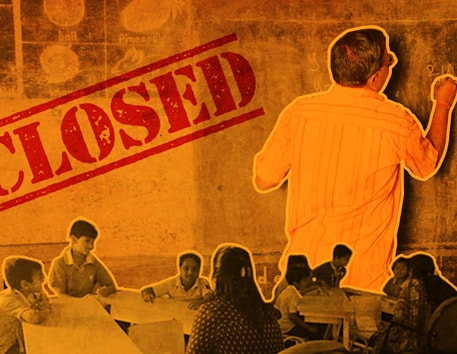
COVID impact: Private schools lost a quarter of students to govt institutions

The worst impact of pandemic on education was felt in rural areas where less than 10% students could avail of the benefit of online classes, says a new study conducted among 1,400 students from 15 states and Union Territories enrolled in classes 1 to 8.
The study, conducted among under-privileged children from cities and villages, revealed that about 40% children have been completely deprived of any form of education since April last year.
The survey was supervised by economists Jean Dreze, Reetika Khera and researcher Vipul Paikra and covered states like Assam, Bihar, Chandigarh, Delhi, Gujarat, Haryana, Jharkhand, Karnataka, Madhya Pradesh, Maharashtra, Odisha, Punjab among others.
Private schools too were badly affected by the pandemic as almost 25% students migrated to government schools either due to financial constraints or due to their inability to learn online. This finding is critical because almost 1/5th of the 1,400 children questioned, were studying in private schools, the study found.
Also read: Maharashtra cancels Ganesha festivities; TN & Karnataka allow
The limitations of online education came to fore once again, the study found. The urban-rural divide too was seen prominently with just 24% students in cities getting access to online education while mere 8% of their rural counterparts getting access to laptops or smartphones, The Indian Express reported.
While unavailability of smart phones emerged as a major hindrance in accessing education, the study found that 31% of urban under-privileged children, who had a smartphone, could actually get education. The number was just 15% in rural areas. The reason for this divide is that phones stay with working parents, who may not be available at home while the classes are on. It was also found that schools, especially those in villages, do not send online study material or even if they do, parents were not aware of it.
Roughly 20% of urban students and 14% of rural students did not get the benefit of midday meals though the Centre had asked states to provide midday meal substitutes in the form of foodgrain and money.

